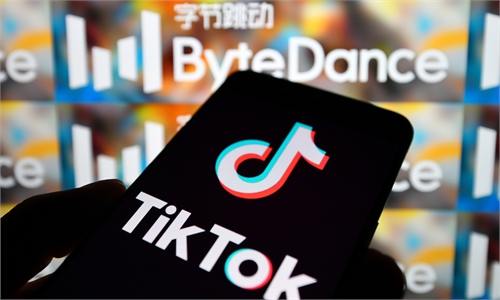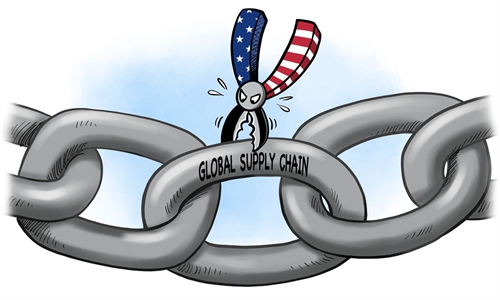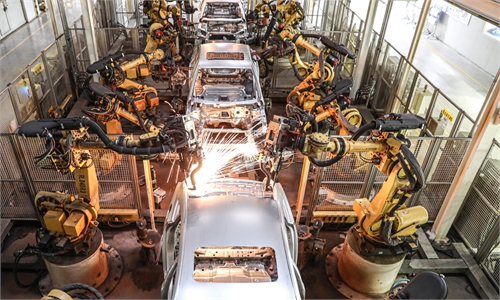CISCE embodies a sense of vision and transcendence
The convening of the inaugural CISCE is indeed timely. In recent years, the most severe challenges facing the global economic and trade sector have revolved around industrial chain and supply chain issues. The impact of the pandemic and the trend of "decoupling" and "derisking" incited by some countries are creating a fragmented and risky outlook. Ngozi Okonjo-Iweala, Director-General of the World Trade Organization, previously warned that if the world were to break up into trading blocs it would mean a 5 percent loss in real global GDP in the longer term. Against this backdrop, China's hosting of the first CISCE, as an innovative initiative, undoubtedly provides valuable positive expectations and policy guidance for the stability of the global industrial chain and supply chain.
The ongoing CISCE lasts for five days, with a total of 515 domestic and foreign enterprises and institutions from 55 countries and regions participating. It covers five supply chains: smart vehicle, green agriculture, clean energy, digital technology, and healthy life, and includes a supply chain service exhibition area. Among the exhibitors, 26 percent are international exhibitors, with American companies accounting for about 20 percent, the figure far exceeding expectations. Major global top 500 enterprises and multinational companies such as Amazon, ExxonMobil, Apple, FedEx, Tesla, GE HealthCare, Intel, HP, Qualcomm, Honeywell, and others have sent representatives.
This reflects at least two answers. Firstly, China is genuinely pursuing an open and inclusive industrial and supply chain, welcoming all international enterprises, including US companies, and firmly opposing exclusive protectionism and various forms of "decoupling." Secondly, despite Washington's continuous maneuvers behind the scenes and attempts to coerce and entice American and other foreign companies to distance themselves from the Chinese market, most multinational enterprises are not swayed. Their actual choices represent the prevailing trend of strengthening global interconnectedness.
Many international media outlets have noticed that just hours before the opening of the CISCE, on November 27 local time, the US established the White House Council on Supply Chain Resilience, convened the first meeting and announced nearly 30 new actions to "strengthen supply chains critical to America's economic and national security." When asked by the media, US officials emphasized "geopolitical risks" and "threats and vulnerabilities" inside the US. This is the latest step taken by the US after implementing a series of protectionist measures. It should be pointed out that Washington's high unilateralism and hegemonic actions have had a significant impact on global industrial and supply chains in recent years.
It is not difficult to see that there are two completely different paths on how to maintain the security and stability of industrial and supply chains across the Pacific. One is focused on eliminating barriers, promoting a more extensive and in-depth globalization driven by market laws, and promoting the construction of a global industrial and supply chain system where countries participate extensively, complement each other's strengths, and share dividends. The other tries to dominate the industrial and supply chains through "reshoring manufacturing" and creating an alliance system, determining who can participate and who will be "kicked out" solely based on the discretion of the "hegemon."
The White House announced that the US Department of Commerce will hold a Supply Chain Data and Analytics Summit next year. It is unknown whether a repeat of what happened in the semiconductor field will occur. Samsung and TSMC are probably the ones who understand the situation the most. Washington's intentions are evident - it aims to permanently solidify its position at the high end of the global industrial and supply chains, which means keeping a large number of developing countries in a subordinate or even economically enslaved position, making it difficult for them to break free. This is a manifestation of economic imperialist thinking. The fact that some media outlets view the CISCE as an attempt to "form another camp" of supply chains dominated by China shows their hegemonism and narrow-mindedness. In fact, China has never approached the issue from this perspective when it comes to maintaining the stability of the industrial and supply chains.
If we really want to discuss the differences between China and the US in maintaining the stability of the industrial and supply chains, it is clear that the US is taking the path of "restricting others and developing itself," while China is pursuing the path of "mutual benefit and win-win cooperation." This is not a so-called competitive relationship claimed by some US media outlets, but a transcendence of narrow-mindedness. We believe that the CISCE, like the Canton Fair and the CIIE, will continue to be held year after year and demonstrate vigorous vitality. China is not only a participant and beneficiary of global industrial and supply chain cooperation, but also a firm defender and builder. This point will become increasingly evident in the future, and China's significance in the global industrial and supply chains will also continue to grow.
Relates posts
US cannot break China’s supply chain
TikTok, the popular short-video app owned by Chinese technology company ByteDance, achieved a major victory in the US after a judge on Thursday (US time) blocked Montana's first-of-its kind state ban on the use of the app from taking effect ...








No comments:
Post a Comment